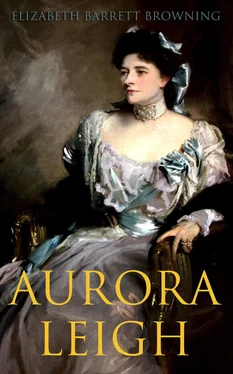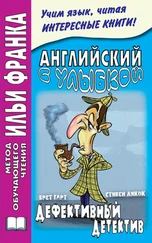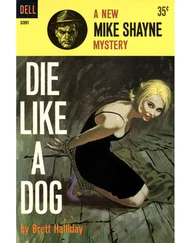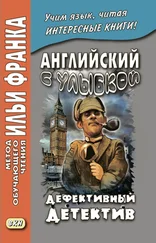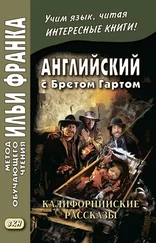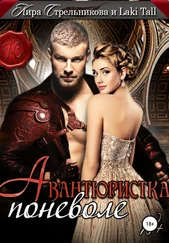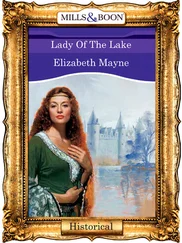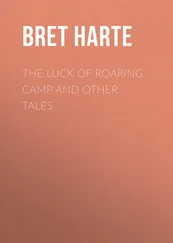A little by his act perhaps, yet more By something in me, surely not my will, I did not die. But slowly, as one in swoon, To whom life creeps back in the form of death, With a sense of separation, a blind pain Of blank obstruction, and a roar i’ the ears Of visionary chariots which retreat As earth grows clearer … slowly, by degrees, I woke, rose up … where was I? in the world; For uses, therefore, I must count worth while.
I had a little chamber in the house, As green as any privet-hedge a bird Might choose to build in, though the nest itself Could show but dead-brown sticks and straws; the walls Were green, the carpet was pure green, the straight Small bed was curtained greenly, and the folds Hung green about the window, which let in The out-door world with all its greenery. You could not push your head out and escape A dash of dawn-dew from the honeysuckle, But so you were baptised into the grace And privilege of seeing. … First, the lime, (I had enough, there, of the lime, be sure— My morning-dream was often hummed away By the bees in it;) past the lime, the lawn, Which, after sweeping broadly round the house, Went trickling through the shrubberies in a stream Of tender turf, and wore and lost itself Among the acacias, over which, you saw The irregular line of elms by the deep lane Which stopped the grounds and dammed the overflow Of arbutus and laurel. Out of sight The lane was; sunk so deep, no foreign tramp Nor drover of wild ponies out of Wales Could guess if lady’s hall or tenant’s lodge Dispensed such odours—though his stick well-crooked Might reach the lowest trail of blossoming briar Which dipped upon the wall. Behind the elms, And through their tops, you saw the folded hills Striped up and down with hedges, (burly oaks Projecting from the lines to show themselves) Through which my cousin Romney’s chimneys smoked As still as when a silent mouth in frost Breathes—showing where the woodlands hid Leigh Hall; While, far above, a jut of table-land, A promontory without water, stretched— You could not catch it if the days were thick, Or took it for a cloud; but, otherwise The vigorous sun would catch it up at eve And use it for an anvil till he had filled The shelves of heaven with burning thunderbolts, And proved he need not rest so early:—then, When all his setting trouble was resolved To a trance of passive glory, you might see In apparition on the golden sky (Alas, my Giotto’s background!) the sheep run Along the fine clear outline, small as mice That run along a witch’s scarlet thread.
Not a grand nature. Not my chestnut-woods Of Vallombrosa, cleaving by the spurs To the precipices. Not my headlong leaps Of waters, that cry out for joy or fear In leaping through the palpitating pines, Like a white soul tossed out to eternity With thrills of time upon it. Not indeed My multitudinous mountains, sitting in The magic circle, with the mutual touch Electric, panting from their full deep hearts Beneath the influent heavens, and waiting for Communion and commission. Italy Is one thing, England one. On English ground You understand the letter … ere the fall, How Adam lived in a garden. All the fields Are tied up fast with hedges, nosegay-like; The hills are crumpled plains—the plains, parterres— The trees, round, woolly, ready to be clipped; And if you seek for any wilderness You find, at best, a park. A nature tamed And grown domestic like a barn-door fowl, Which does not awe you with its claws and beak, Nor tempt you to an eyrie too high up, But which, in cackling, sets you thinking of Your eggs to-morrow at breakfast, in the pause Of finer meditation. Rather say, A sweet familiar nature, stealing in As a dog might, or child, to touch your hand Or pluck your gown, and humbly mind you so Of presence and affection, excellent For inner uses, from the things without.
I could not be unthankful, I who was Entreated thus and holpen. In the room I speak of, ere the house was well awake, And also after it was well asleep, I sate alone, and drew the blessing in Of all that nature. With a gradual step, A stir among the leaves, a breath, a ray, It came in softly, while the angels made A place for it beside me. The moon came, And swept my chamber clean of foolish thoughts. The sun came, saying, ‘Shall I lift this light Against the lime-tree, and you will not look? I make the birds sing—listen! … but, for you, God never hears your voice, excepting when You lie upon the bed at nights and weep.’
Then, something moved me. Then, I wakened up More slowly than I verily write now, But wholly, at last, I wakened, opened wide The window and my soul, and let the airs And out-door sights sweep gradual gospels in, Regenerating what I was. O Life, How oft we throw it off and think—‘Enough, Enough of life in so much!—here’s a cause For rupture;—herein we must break with Life, Or be ourselves unworthy; here we are wronged, Maimed, spoiled for aspiration: farewell Life!’ —And so, as froward babes, we hide our eyes And think all ended.—Then, Life calls to us In some transformed, apocryphal, new voice, Above us, or below us, or around. … Perhaps we name it Nature’s voice, or Love’s, Tricking ourselves, because we are more ashamed To own our compensations than our griefs: Still, Life’s voice!—still, we make our peace with Life.
And I, so young then, was not sullen. Soon I used to get up early, just to sit And watch the morning quicken in the grey, And hear the silence open like a flower, Leaf after leaf—and stroke with listless hand The woodbine through the window, till at last I came to do it with a sort of love, At foolish unaware: whereat I smiled— A melancholy smile, to catch myself Smiling for joy. Capacity for joy Admits temptation. It seemed, next, worth while To dodge the sharp sword set against my life; To slip down stairs through all the sleepy house, As mute as any dream there, and escape As a soul from the body, out of doors— Glide through the shrubberies, drop into the lane, And wander on the hills an hour or two, Then back again before the house should stir.
Or else I sate on in my chamber green, And lived my life, and thought my thoughts, and prayed My prayers without the vicar; read my books, Without considering whether they were fit To do me good. Mark, there. We get no good By being ungenerous, even to a book, And calculating profits … so much help By so much reading. It is rather when We gloriously forget ourselves, and plunge Soul-forward, headlong, into a book’s profound, Impassioned for its beauty and salt of truth— ’Tis then we get the right good from a book.
I read much. What my father taught before From many a volume, Love re-emphasised Upon the self-same pages: Theophrast Grew tender with the memory of his eyes, And Ælian made mine wet. The trick of Greek And Latin, he had taught me, as he would Have taught me wrestling or the game of fives If such he had known—most like a shipwrecked man Who heaps his single platter with goats’ cheese And scarlet berries; or like any man Who loves but one, and so gives all at once, Because he has it, rather than because He counts it worthy. Thus, my father gave; And thus, as did the women formerly By young Achilles, when they pinned the veil Across the boy’s audacious front, and swept With tuneful laughs the silver-fretted rocks, He wrapt his little daughter in his large Man’s doublet, careless did it fit or no.
But, after I had read for memory, I read for hope. The path my father’s foot Had trod me out, which suddenly broke off, (What time he dropped the wallet of the flesh And passed) alone I carried on, and set My child-heart ’gainst the thorny underwood, To reach the grassy shelter of the trees. Ah, babe i’ the wood, without a brother-babe! My own self-pity, like the red-breast bird, Flies back to cover all that past with leaves.
Sublimest danger, over which none weeps, When any young wayfaring soul goes forth Alone, unconscious of the perilous road, The day-sun dazzling in his limpid eyes, To thrust his own way, he an alien, through The world of books! Ah, you!—you think it fine, You clap hands—‘A fair day!’—you cheer him on, As if the worst, could happen, were to rest Too long beside a fountain. Yet, behold, Behold!—the world of books is still the world; And worldlings in it are less merciful And more puissant. For the wicked there Are winged like angels. Every knife that strikes, Is edged from elemental fire to assail A spiritual life. The beautiful seems right By force of beauty, and the feeble wrong Because of weakness. Power is justified, Though armed against St. Michael. Many a crown Covers bald foreheads. In the book-world, true, There’s no lack, neither, of God’s saints and kings, That shake the ashes of the grave aside From their calm locks, and undiscomfited Look stedfast truths against Time’s changing mask. True, many a prophet teaches in the roads; True, many a seer pulls down the flaming heavens Upon his own head in strong martyrdom, In order to light men a moment’s space. But stay!—who judges?—who distinguishes ’Twixt Saul and Nahash justly, at first sight, And leaves king Saul precisely at the sin, To serve king David? who discerns at once The sound of the trumpets, when the trumpets blow For Alaric as well as Charlemagne? Who judges prophets, and can tell true seers From conjurors? The child, there? Would you leave That child to wander in a battle-field And push his innocent smile against the guns? Or even in the catacombs, … his torch Grown ragged in the fluttering air, and all The dark a-mutter round him? not a child!
Читать дальше
